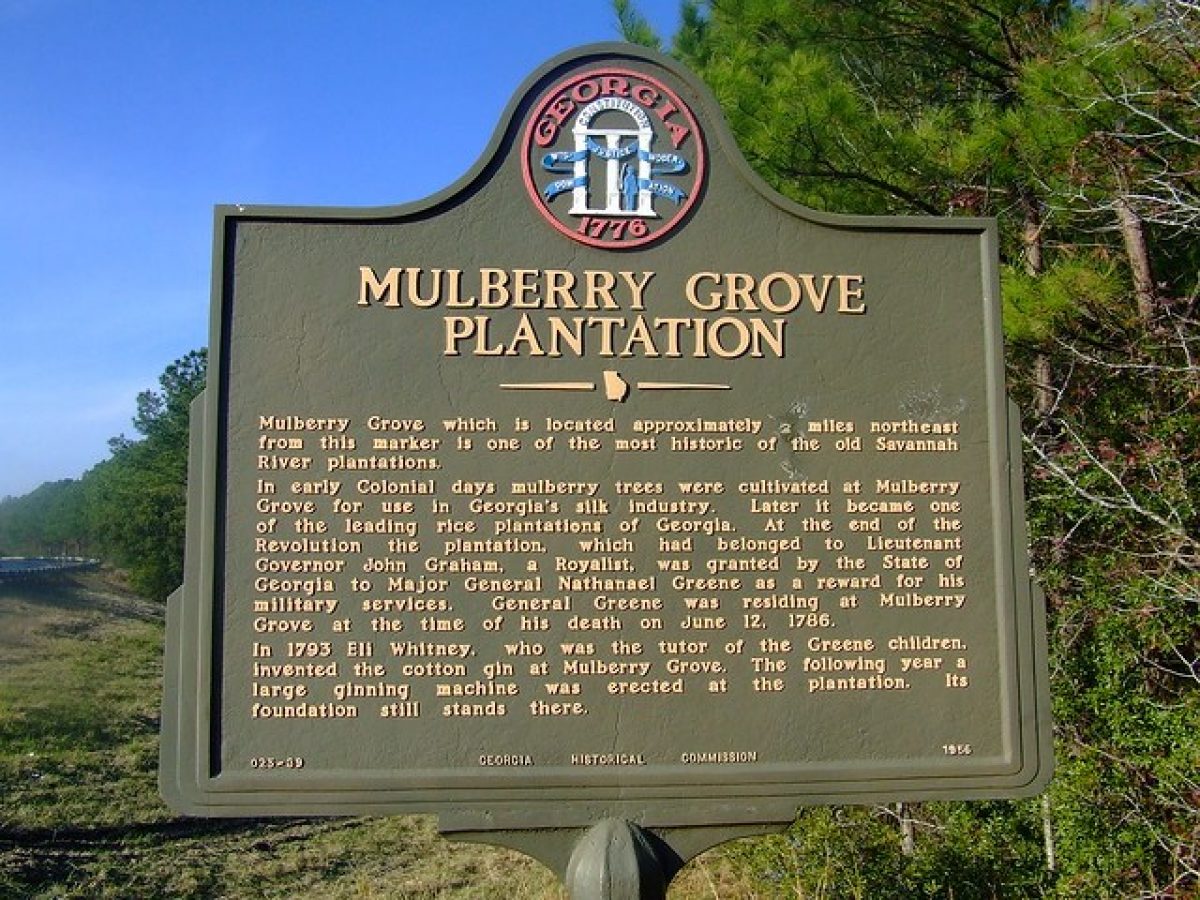Two December dates are important in the history of Mulberry Grove Plantation. Each would have an important story to tell…one story signifying a beginning. The other heralded the end of an era.
On December 25, 1857, an enslaved baby boy was born on that plantation. He would never know his Mother, for she died soon after his birth. That baby was Christmas Moultrie.
In December 1864, General Sherman’s 60,000 troops entered Savannah, the last stop on the infamous “March to the Sea,” with one wing of Sherman’s army setting fire to Mulberry Grove Plantation as they passed through. History relates that the plantation owner, Zachariah Winkler, stood on those grounds, watching his property burning, while one of his former slaves stood guard over him.
History does not tell us much about Christmas Moultrie’s early life, except it was not easy. After the plantation buildings were burned, what was left of the Moultrie family moved to the nearby Monteith settlement. However, Christmas stayed on the Mulberry property. He told of hard times after the war, but he survived…and as a free man.
He was known as Mulberry’s official caretaker, even though he never learned to read or write and seldom wore shoes except when he went into Savannah, a dozen or so miles down the river. He fished and hunted duck, often selling them to the famous DeSoto Hotel in Savannah. He farmed part of the land and sold vegetable in City Market and made and sold fishing and scrimping nets.
We learn most about Christmas today from two people who knew him well, his granddaughter, Martha McCullough, a retired Savannah teacher, and Savannah author and historian Hugh Golson. Golson was related to the Winkler family and explained that Zachariah Winkler purchased 617 acres of what was then Mulberry, plus an additional 31 acres from Drakes Plantation at auction in 1856 for $14,000 and would become one of the major rice planters on the Georgia side of the Savannah River.
He has also felt that Christmas’s last name came from the Moultrie family in Charleston, South Carolina. Winkler would have needed more slaves after his land purchases, and Golson reasoned that he purchased the additional slaves from the Charleston Slave Market.
Christmas lived in a raised cabin by the plantation gate near the Augusta highway. The cabin had a small bedroom, living area and kitchen with cast iron pots and a wood stove…no electricity, just kerosene lamps. Martha McCullough recounted that when Christmas left for his overnight hunting and fishing forays, often with his dogs in tow, she and her mother would come from Savannah to stay ion the cabin to clean it. She said the wooden floor was always covered with dirt that her grandfather had tracked in.
According to Martha…while he had no formal education, he had wit, common sense and great integrity and was well-liked by both blacks and whites. and in later years, was referred to as the “Mayor of Monteith” for his abilities to diffuse disputes. And…he had friends in high places, as we will learn.
One of Moultrie’s other talents was making moonshine that he declared was better than what was being sold in Savannah’s package stores. Apparently several Savannah judges thought so also. Occasionally he would be arrested for selling ducks out of season or imbibing too much himself when in the city. He would somehow wiggle out of the charges, and then later would send the judges samples of his homemade brew. Martha said she was quite young when her grandfather would hand her a neatly wrapped package before she and her mother left his cabin and tell her to hand-deliver it to certain Savannah judges, confident the no one would question a young girl with a package entering the court house.
The 2013 movie “Savannah” told the life of Ward Allen, born to a wealthy family but who preferred his life on the Savannah River. He was often accompanied on these trips by Christmas. In the film, Ward Allen was played by Jim Caviezel and Christmas by Chiwetel Ejsofar.
Mulberry Grove and the Savannah River were Christmas Moultrie’s life until the 1950’s when he became illl and was unable to hunt and fish as he liked. Martha’s mother brought him to Savannah to live with her and in 1957 he died at age 100.
As for lasting tributes, his grave and headstone are at Cherokee Hill Baptist Graveyard and anyone traveling near I-95 and Highway 21 will notice a sign “The Christmas Moultrie Interchange.”
Martha McCullough’s favorite memory of her grandfather was his constant reminder to her – “trouble don’t last always.”
Information for this story was provided through interviews conducted by Solomon Smith, Susan Smith and Regan Everett for the Mulberry Grove Oral History Project.

Would like to hear more on Christmas and ward allen how did they come acquainted?
Christmas lived in a small cottage on the grounds of Mulberry and he and Ward Allen became friends through fishing together, duck hunting together etc. Ward Allen did not “fit the mold” of the typical well-to-do Savannah family and found peace with nature, having his boat on the Savannah River.
The movie “Savannah” tells the tale of Christmas and Allen pretty well. It never went over big nationally but is a beautiful film, worth seeing. Thanks for checking in.